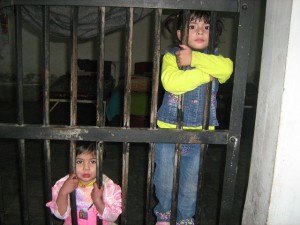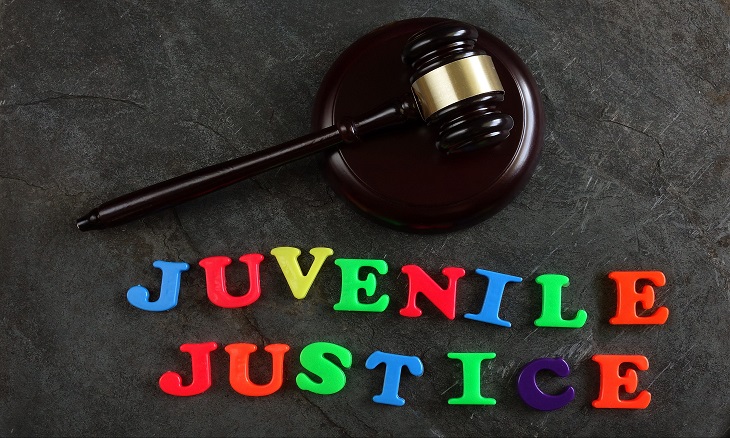Understanding the Law Related to JUVENILE JUSTICE in Pakistan
Making of a law and its implementation are two different and distinct phases of an idea getting traction in governance priorities. Insofar as the lawmaking is concerned, the idea of treating child offenders separately and in more sophisticated manner has been introduced through a second version of the national law. The first version was introduced in the form of the Juvenile Justice System Ordinance, 2000 (JJSO). Repealing the first version, a second version styled as the Juvenile Justice System Act, 2018 (JJSA) has been enacted. For the sake of legal clarity, there is a good cause to examine different aspects of the latest version, i.e. JJSA:
- Constitutionality
Constitutionalism is the first test of any legislation. Whereas all citizens are equal in the eyes of law, the state may, under article 25(3), legislate separately for women and children. Such positive discrimination is constitutionally sanctioned in Pakistan and serves as the constitutional basis of legislation on juvenile justice.
- Linkage with International Law
Imperatives of international law also played a role for juvenile justice legislation in Pakistan. Pakistan ratified the Convention for the Rights of Children (CRC) in 1990. Article 40 of the CRC deals with children accused of violating penal law of a state and guarantees minimum guarantees which must make part of any juvenile law. These minimum guarantees include right to information about such an allegation, determination of such an allegation without delay, not to be compelled as witness against himself, right to appeal to a higher forum than the one that made the first determination and right to privacy in any such proceedings.
- Legislative History
There have been different laws dealing with substantive and procedural aspects. The provisions relating to criminal liability are part of the Pakistan Penal Code, 1860 (PPC). Sections 82 and 83 of the PPC cascade the criminal liability and enumerate age as a ‘defence’ with effect of mitigating the rigour of law. Likewise, the Islamic penal law in the form of Hudood Ordinance, 1979, also legislated on the subject. However, the first special law on the subject covering both the substantive and procedural law was introduced in the form of JJSO. But, the JJSO was suspended by the Lahore High Court (LHC) in 2004 in the case titled as Farooq Ahmed vs. Federation of Pakistan (PLD 2005 Lahore 15). The LHC had suspended the operation of JJSO, inter alia, for being impracticable. The order of the LHC was reversed by the Supreme Court of Pakistan in 2005 and thereafter the JJSO was repealed by JJSA in 2018.
- Shared Responsibility of the Federation and the Provinces
The JJSA has been legislated by the national legislature by invoking its powers under Articles 142 and 143 of the Constitution of Pakistan that make criminal law, criminal procedure and evidence as Concurrent subjects, enabling both the Federation and the Provinces to legislate on the subject of juvenile justice. JJSA clearly shows that both the Federation and the Provinces are bound to protect juveniles as required by the constitution and the international human rights law.
- Characteristic Features
- Scheme
The scheme of JJSA is elaborate as it tries to cater for both the substantive as well as procedural sides of the law.
- Age-related Debates
The age-related debates are at the heart of the legislation. Section 2(b) provides that child is anyone who has not attained the age of eighteen years; the definition is a reflection of Article 1 of the CRC. On the other hand, un-repealed sections 82 and 83 of PPC mitigate the criminal liability till the age of 12. The Islamic family and penal laws relate it to puberty. Likewise, the newly-added Article 25-A through the Eighteenth Constitutional Amendment ties the age for compulsory education to upper age limit of sixteen years. These variations and the power to determine age by judicial fora ultimately has triggered different views, which have confounded the very applicability of the law. The neat distinctions between administrative, criminal and civil laws have not been utilized to clarify the issue. Similarly, the unbridled discretion in sentencing has also not helped in developing uniform sentencing standards having precedential value.
- Rights of a Juvenile
JJSA protects a juvenile by conferring many rights on him. Chief rights among them are:
- Right to legal assistance (section 3)
- Right to be informed about arrest (section 5)
iii. Right to be released on bail (section 6)
- Right to be dealt by a senior police officer (section 7)
- Right to be tried separately from an adult co-accused (section 12)
- Right to privacy in judicial proceedings (section 13)
vii. Shield against capital punishment (section 16(1))
viii. Shield against disqualification (section 19)
- Juveniles accused of different types of offences are to be sentenced by keeping in view the following scale:
- ‘Minor Offences’ (punishable with imprisonment up to three years) – eligible to be considered for diversion order and entitled to bail.
- ‘Major Offences’ (punishable with imprisonment up to seven years) – eligible to be considered for diversion order and entitled to bail, if less than sixteen years of age.
- ‘Heinous Offences’ (punishable with death penalty, or life imprisonment, or imprisonment up to 10 years) – may be denied bail, if above sixteen years of age and not eligible to be considered for diversion order.
- Institutional Arrangement
In addition to conferring rights on a juvenile, the following two new institutions have been constituted by the JJSA:
- Juvenile Court
The JJSA empowers the government to constitute Juvenile Courts. Sufficiently-senior judges of the rank of Sessions Judge are to be notified as judges of Juvenile Courts. These Courts can pass all the punishments required under the penal law except capital punishment. These specialized courts are also conferred with power to pass diversion orders, which are essentially alternatives to formal penal law. The diversion orders are essentially restorative in nature. These include restitution of movable property, reparation of damage caused, written or oral apology, participation in community service, payments of the costs of proceedings, placement in rehabilitation centres and written or oral reprimand.
- Juvenile Justice Committee
To maximize options, the JJSA has provided for constitution of Juvenile Justice Committee that can pass diversion orders as an alternate to formal judicial orders.
- Obligations for Police
The law specifically obliges police to do the following:
- The cases of juveniles be investigated by officers not below the rank of Sub-Inspector;
- The police officer investigating a juvenile is required to associate a probation officer or a social welfare officer (authorized by government to carry out social investigation);
iii. The police shall inform the guardian of a juvenile, in case of arrest;
- The police officer investigating a juvenile shall try to determine the age of the accused. He shall first try to rely on the documentary evidence (birth or educational certificate) and in absence of any such document, may refer the matter to the medical officer.
- No female juvenile offender is to be arrested by male police officer;
- No juvenile is to be handcuffed or fettered by police officers or prison staff.
- Implementation
All the lofty and noble ideas contained in the progressive legislation come into question when not implemented. The implementation, in turn, depends upon reservation of resources and administrative will to see the law in action. With sporadic and partial implementation of the law, the idea of a specialized law takes the flak.
Future Course of Action
The JJSA is a well-drafted law, but its impact will diminish unless it is wholeheartedly implemented. The rules for actual implementation are under deliberation. Their promulgation will be a sign of the seriousness of the government. In addition, the JJSA must be made part of training of police, prosecution, judiciary and prisons departments. Dedicated funding with monitoring mechanisms including collection and collation of data may help Pakistan to improve its standings in international fora. Investment in children of the nation, in any form, is going to pay far-reaching dividends.
The author is an independent researcher
and has done his BCL from the University of Oxford. Email: kamranadilpsp@gmail.com
 Jahangir's World Times First Comprehensive Magazine for students/teachers of competitive exams and general readers as well.
Jahangir's World Times First Comprehensive Magazine for students/teachers of competitive exams and general readers as well.



